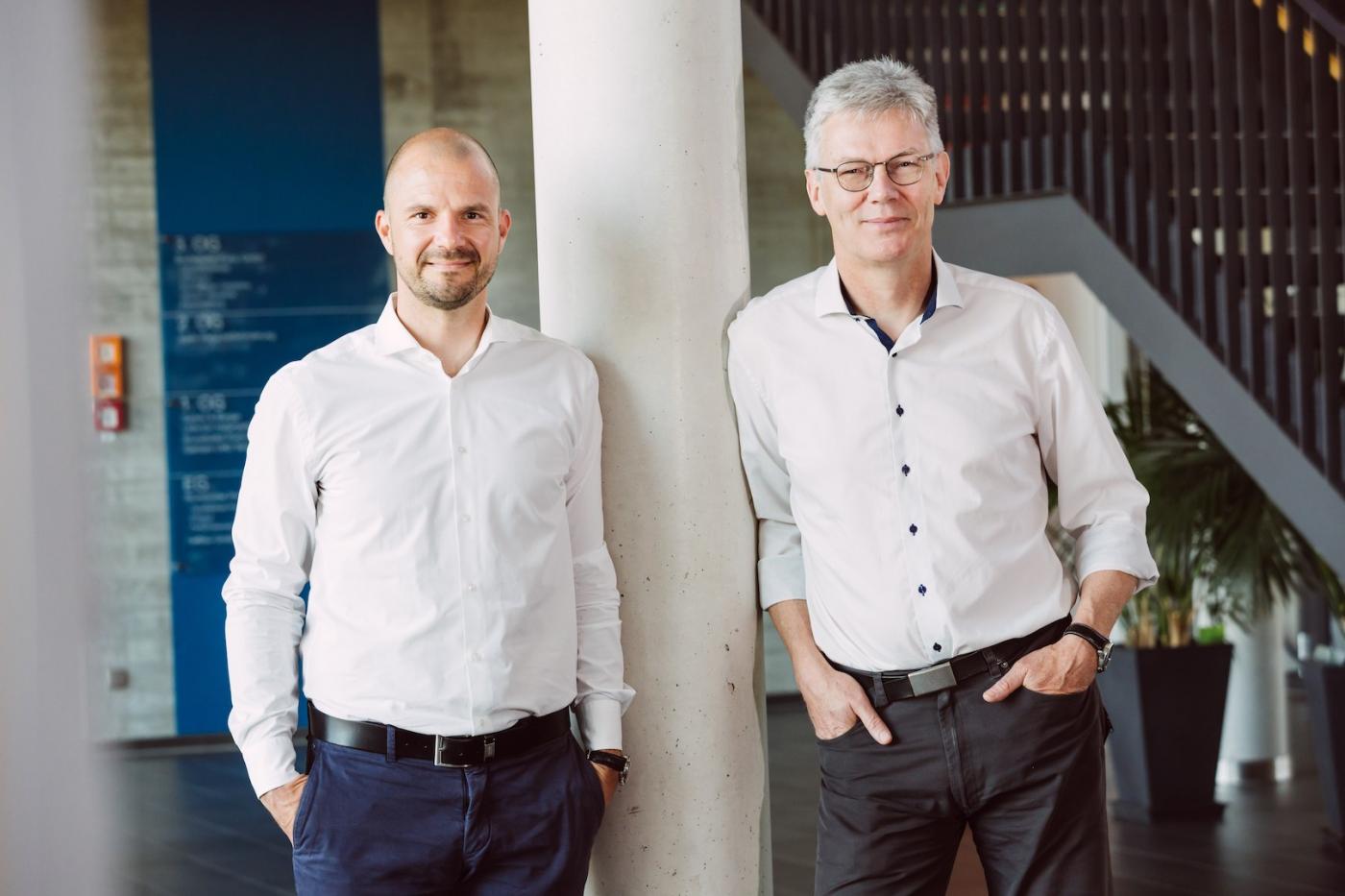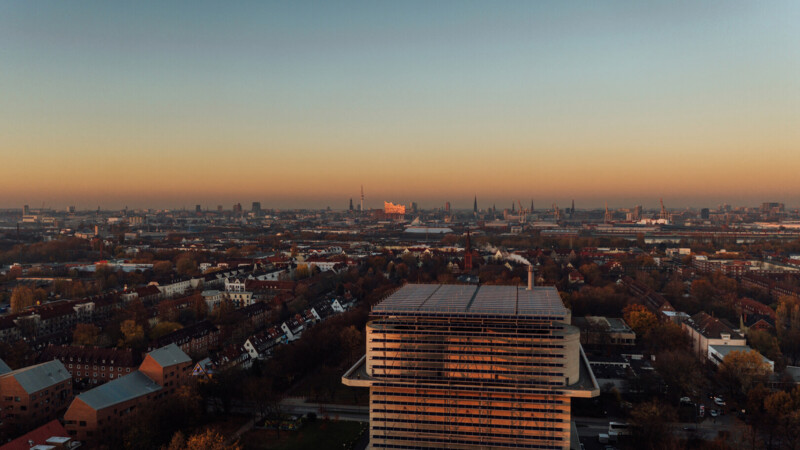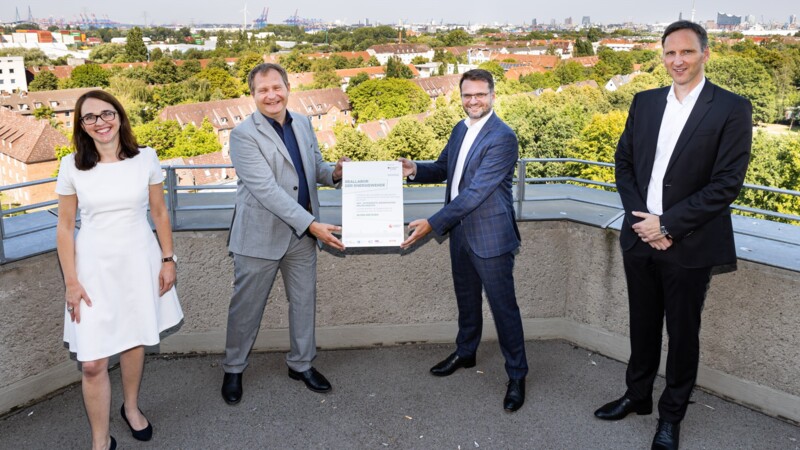Wulff is pushing ahead with climate-friendly heat from WestholsteinWärme GmbH. Founded only last autumn, Stadtwerke Brunsbüttel and Entwicklungsgesellschaft Westholstein have a half share each and have made initial contacts with potential suppliers of heating for Brunsbüttel.
Almost half of Germany's electricity needs are met by wind, hydroelectric, solar and biomass. But climate-neutral heating at just over 15 per cent lags far behind the ambitious goal of a 65 per cent cut in CO2 emissions by 2030 over 1990 as oil and gas-fired heating systems are still the norm. Brunsbüttel in Elbmarsch, about 70 kilometres northwest of Hamburg, is keen to change that situation soon. "We're getting out of fossil fuel combustion and into regenerative heating," said Andreas Wulff, Managing Director of Stadtwerke Brunsbüttel.
District heating from renewable energy
Sasol, the South African chemical company, has a factory between the Elbe and the Kiel Canal and will supply most of the heat. Basic chemicals for detergents, pharmaceuticals and abrasives such as aluminas, paraffins and fatty alcohols are already produced there and generate lots of previously unused waste heat that could heat homes in future."When the demand for heating is high, especially in winter, heat from the combustion of wood chips is supplemented," said Wulff.
Bioenergie Brunsbüttel Contracting GmbH's biomass cogeneration plant, which is a subsidiary of Hamburger Energiewerke GmbH, will deliver the heat. "This project is an important part of the regional energy transition," said Dr Guido Austen, Managing Director of Westholstein Wärme and infrastructure expert at Entwicklungsgesellschaft Westholstein.

District heating network planned
"To begin with, we want to supply 3,000 to 4,000 households or almost a third of the city with heat," said Wulff. But a modern district heating network is needed to ensure that the 90-degree hot water actually reaches the buildings. Ten kilomteres of insulated water pipes are to be laid through the city's subsoil.
"We have to dig right through the city," said Wulff. Planning is in full swing, and the first excavations could begin this year. Residents have already been informed of the project, he says. "The interest and demand are enormous," said Wulff. Many households are keen on attractive and predictable heating costs and rightly so. "High, fluctuating prices for gas heating will no longer be an alternative," he added.
Elbmarsch to become climate neutral by 2045
However, the move towards a climate-friendly heat supply is by no means cheap. Around EUR 15 million have been earmarked for the first phase through 2026, 30 to 40 per cent of which will be provided by the German government as part of the "Heat Networks 4.0" funding scheme. However, the heating network is only a first step, according to Wulff and Austen.
WestholsteinWärme GmbH also hopes to build plants with large heat pumps to use the residual heat from water in the Kiel Canal. Geothermal energy and biomass generated locally could also lead more diverse sources of heat. "Moreover, we are virtually surrounded by wind turbines here," said Austen. So it makes sense to convert surplus wind power to heat (power-to-heat) or even hydrogen and liquid fuels (power-to-X) in future. "That will benefit Brunsbüttel and the entire region between the Elbe, Eider and Stör rivers," he pointed out. Both he and Wulff are aiming for climate-neutrality: "We want the Elbmarsch to become climate-neutral by 2045." The region would then be fully in line with the German goverment's climate protection strategy and that of the state of Schleswig-Holstein.
ol/tn/kk/pb
Sources and further information
More
Similar articles

Drilling underway in Wilhelmsburg to extract geothermal energy

Hamburg launches real laboratory for heating transition

Hamburg to generate heat from waste
